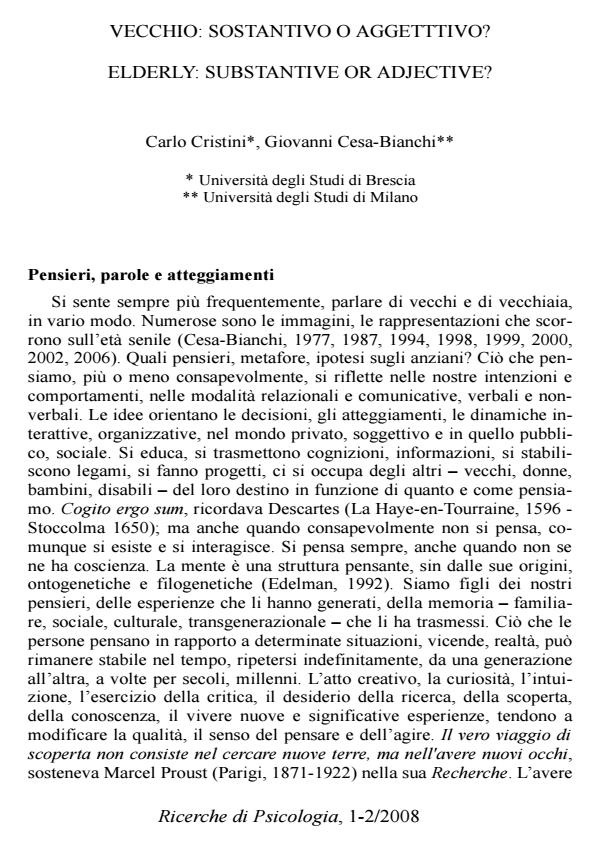Vecchio: sostantivo o aggettivo?
Journal title RICERCHE DI PSICOLOGIA
Author/s Carlo Cristini, Giovanni Cesa-Bianchi
Publishing Year 2008 Issue 2008/1-2
Language Italian Pages 36 P. 35-70 File size 568 KB
DOI
DOI is like a bar code for intellectual property: to have more infomation
click here
Below, you can see the article first page
If you want to buy this article in PDF format, you can do it, following the instructions to buy download credits

FrancoAngeli is member of Publishers International Linking Association, Inc (PILA), a not-for-profit association which run the CrossRef service enabling links to and from online scholarly content.
Vecchio: sostantivo o aggettivo? The research which has been undertaken in psychogerontology and neuroscience has allowed to refute prejudicial opinions as regards the negative prospects of aging. There are active, enterprising and creative old people as well as others less fortunate, in situations of illness or disability. The creative process, past experiences, the possibility of expressing oneself, and communicating with others, particularly younger people, to undertake voluntary service especially with less fortunate people of the same age and the use of ones resources and individual abilities allows many old people to strengthen and rediscover the spiritual substance and sense of self in terms of both their own identity and memories. Each individual person grows old in different ways, conforming to their biological, psychological, social and cultural factors. The aging process can be the complete realisation of ones life, and its meanings. The old man, aware of his spiritual strength, of his dignity and his culture becomes the main character, the protagonist, the substantive of the human adventure. The adjective elderly, which express time going by, is transformed through experience, creative power, knowledge and self realisation into its corresponding and far more dignified substantive the elderly.
Carlo Cristini, Giovanni Cesa-Bianchi, Vecchio: sostantivo o aggettivo? in "RICERCHE DI PSICOLOGIA " 1-2/2008, pp 35-70, DOI: